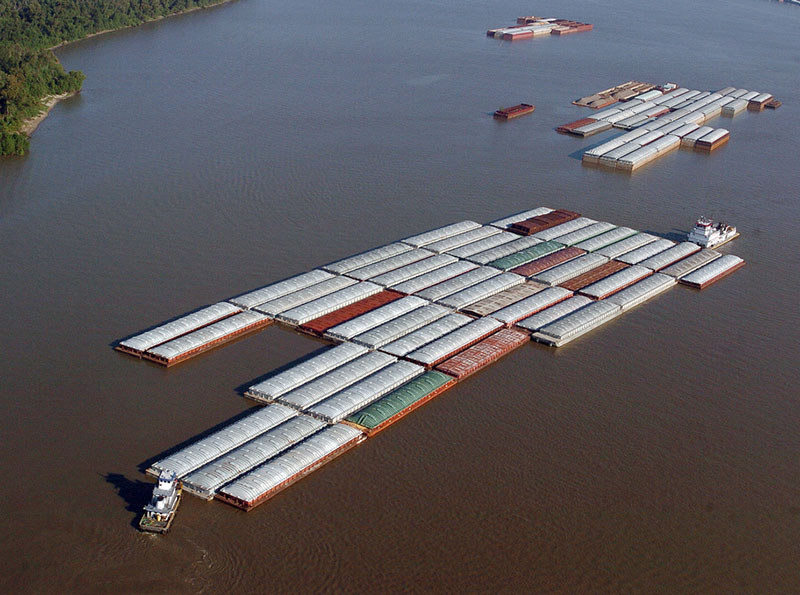Last month, the Environmental Protection Agency (EPA) invited public comment on federal regulations that should be repealed, replaced or modified, and the inland navigation industry weighed in with a barge load of ideas.
The effort stems from an executive order signed by President Trump that instructs federal agencies to review regulations that “eliminate jobs, or inhibit job creations” and/or “impose costs that exceed benefits.”
The American Waterways Operators (AWO), the association that represents the industry in Washington, joined 70,000 others who responded. The reactions ranged from outrage and anger that the Trump administration would consider rolling back rules that protect the environment, to relief that the president recognizes that burdensome rules stifle business.
“We applaud the Trump Administration for initiating this effort to alleviate unnecessary regulatory burdens and seeking feedback from the public to assist EPA in evaluating its regulations,” Jennifer Carpenter, executive vice president and COO, said in AWO’s May 15 submission.
She said that the towing industry needs to be governed by “clear and practical federal statues and regulations, consistently and uniformly applied and administered across the country,” so that inland vessels can continue to move cargo safely and economically on the nation’s rivers.
“Infeasible or ineffective regulations” she said, could push cargo to other modes of transportation “that pose increased safety and environmental risks.”
Topping the list of concerns of the industry, Carpenter wrote, is assuring that EPA support the authority of federal lawmakers and regulators over interstate navigation, and that EPA regional offices are consistent when making decisions that affect the movement of interstate commerce by water.
To this end, AWO seeks:
- Trump administration support for the Commercial Vessel Incidental Discharge Act, now pending in Congress, that establishes a uniform national regime to regulate ballast water and other discharges from towing vessels. Currently, the EPA requires Vessel General Permits that include certification conditions from 25 states, which creates “an overlapping patchwork of regulatory requirements.” Discharges are also regulated by the Coast Guard under various other laws. “This dysfunctional regime of duplicative and sometimes conflicting federal and state regulations severely complicates compliance for vessel operators and mariners and requires American taxpayers to foot the bill for the administration of redundant federal and state regulatory programs,” AWO wrote.
- EPA action to reform the way it interprets “No Discharge Zones” for vessel sewage discharge under the Clean Water Act. The law prohibits states from adopting or enforcing their own regulations on the manufacture and use of marine sanitation devices unless a state determines greater protections are necessary, and it petitions to create “No Discharge Zones.” AWO says EPA regional offices have often approved state NDZ’s even though towing vessels aren’t able to use pump-out facilities identified by states because they are incompatible with towing vessel operations. AWO wants the EPA regional offices to be required to use a consistent criteria to determine the adequacy and availability of pump-out facilities that considers the needs of towing vessels.
- A delay in implementing Tier 4 Engine Emissions Standards, which mandate reductions in emissions of sulfur and nitrogen oxides for new marine diesel engines over 800 horsepower, until more is known about the economic and environmental benefits for river navigation and the availability of the engines for towing vessels. Beginning this year, no engine can be made that does not meet these new standards, but AWO says that the new engines that include the exhaust scrubber technology aren’t readily available for vessels under 1,300 horsepower. The group says a review of the timeline for Tier 4 standards should also re-examine whether the costs of developing, manufacturing, installing and operating Tier 4 engines exceed the environmental and economic benefits for engines in the lower horsepower category.
The EPA’s comment period has ended, and AWO’s comments will be handed over to a task force that is being formed at the EPA. This group must submit a report to EPA Administrator Scott Pruitt that recommends regulations that could be altered or replaced.




